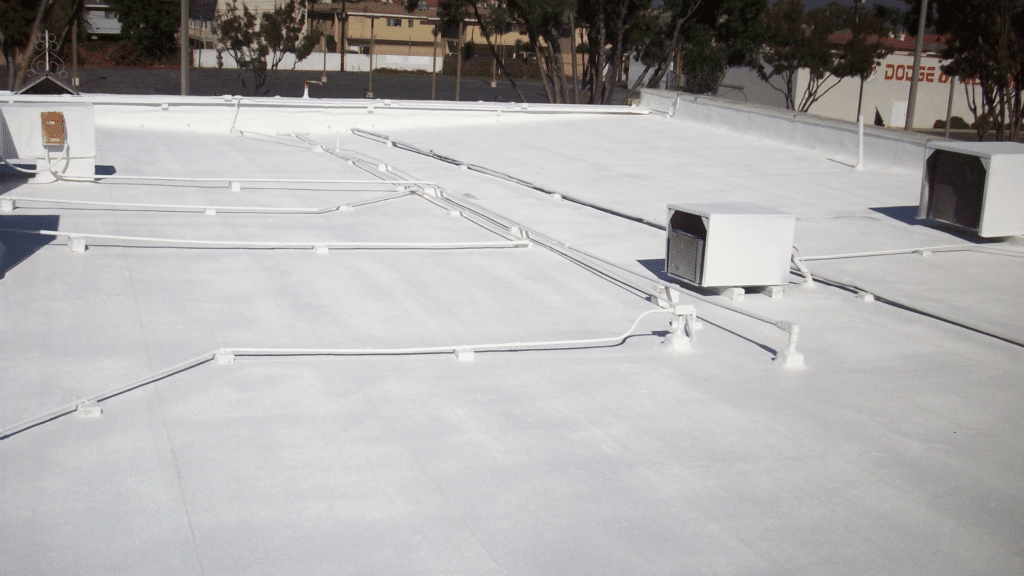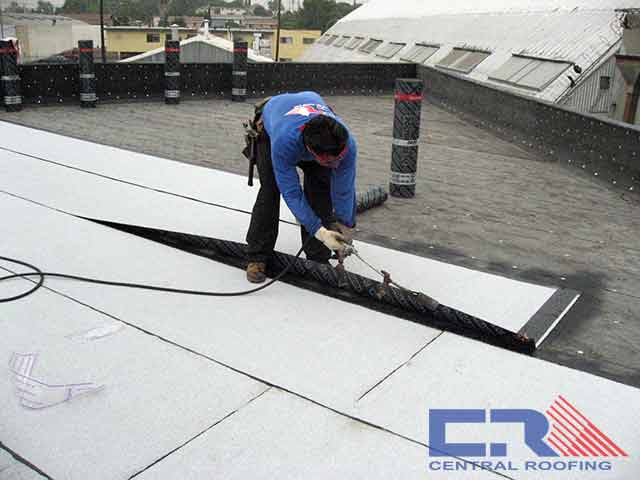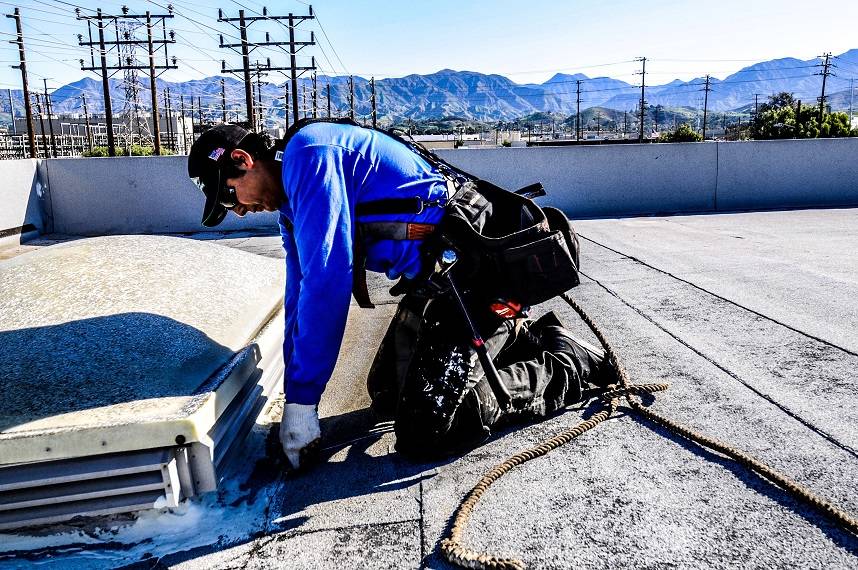Flat roofs have been around for a very long time, and they’ve held the spotlight for being the go-to option for commercial roofs. Why? Well mostly because of the cost. With the majority of commercial buildings having flat roofs, the need for having a commercial roofing system that is specifically built for flat roofs is essential to the health of the roof and the overall structure of the commercial building.
Since 1972, Modified Bitumen Roofing Systems have been the relied upon option for flat commercial roofs. And for good reason, but there are some important things you should know about these commercial roofing systems. Let’s look at 12 Pros and Cons of Modified Bitumen Commercial Roofing Systems.
What is Modified Bitumen Roofing?
To start let’s begin with what is “modified bitumen roofing? ” Mod-Bit” as it’s called in the industry was developed to replace the more costly and complicated Built-Up Roofing (BUR). Modified Bitumen Roofs are made with asphalt material combined with polymerized rubber or plastic.
This combination of either rubber or plastic is why it’s called “modified” because the asphalt is “modified” with either rubber (often called “SBS” in the industry) or with plastic (often called “APP” in the industry.)

Additionally, it is installed in 3 ways, a torch-down method, a hot-mop method, or a cold adhesive method. Now that we have a little backstory to Modified Bitumen Roofing, let’s get into the pros and cons of this commercial roofing system.
1. EASY INSTALLATION (PRO)
Modified Bitumen is easy to install. They come in rolled sheets that are 3 feet wide and up to 36 feet long, which are rolled easily onto the roof atop a base sheet membrane. If damaged, bitumen patches can be used to quickly and efficiently repair it.
2. LEAK RESISTANT (PRO)
No matter what type of method was used to install the modified bitumen they all have on thing in common, that is a good seal. The modified bitumen seals down to the roof so there are no seams. This makes it waterproof and resistant to leaks.
3. VERSATILE (PRO)
There are three popular ways to install Modified Bitumen: self-adhesive, cold adhesive, and heat. All of them create a tight connection creating a consistent and seamless connection between the sheets.
4. U.V AND HEAT RESISTANT (PRO)
Modified Bitumen is UV resistant making it durable against the sun’s radiation. This can help to reduce energy costs, especially if lighter colors or more reflective top coatings are used.
5. TEAR RESISTANCE (PRO)
Due to the combination of fiberglass and/or polyester reinforcement layers, these roofs are tear-resistant and can handle foot traffic well.
6. STYLE OPTIONS (PRO)
You have multiple options for color with this roofing. The granules on the cap sheets can vary to match any color of shingles.
7. FIRE RESISTANT (PRO)
Modified Bitumen can be rated up to a Class A fire rating which is the highest fire rating.
8. ENVIRONMENTALLY FRIENDLY (PRO)
Some Modified Bitumen materials can be recycled. This means that your roofing materials can get reused and it can avoid getting added to the inevitable dump pile. This will help reduce your carbon footprint.
With so many good things about them, it’s no wonder why so many commercial flat roofs use them But there are some bad things about them. Let’s take a look!
1. LIFESPAN (CON)
Modified Bitumen has a life expectancy of 10-20 years. Although not extremely low, it is still one of the lowest out of all the commercial roofing materials options available. It’s also important to note that some of this can be resolved by applying a cool roof coating to the modified bitumen membrane roof.
2. WATER-RESISTANCE (CON)
In the absence of a proper drainage system set up on a flat roof, water is bound to get collected on the surface. When this occurs, Modified Bitumen is known to wear down faster in comparison to other flat roof types like TPO or PVC.
3. TORCH FUMES (CON)
One of the famous and reliable methods for Modified Bitumen installation is to blowtorch with extreme heat and install the sheets. This can release harmful fumes which can be dangerous if contact is not avoided, it also poses an extreme fire hazard.
4. FOUL ODOR (CON)
You will likely notice a strong odor after the installation process is done. The spread, intensity, and lasting effect of the odor depend on the area covered in the installation. Consider getting your roof installed when you are prepared to either relocate temporarily or deal with the smell for a few days.
Conclusion
Despite other commercial flat roofing options such as TPO, and PVC, Modified Bitumen has been able to hold its own. Its low maintenance, reliability, and nature-friendly properties make them a great choice for your commercial flat roof.

